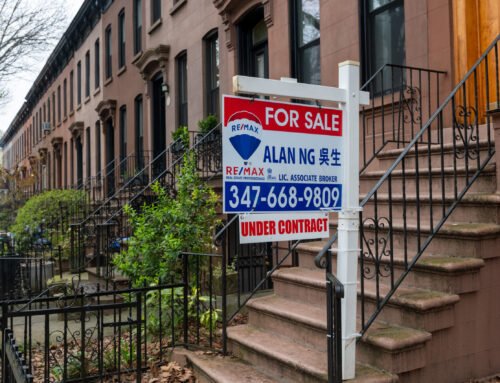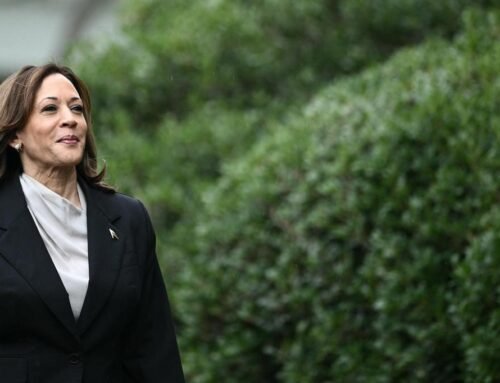Desmond Meade registered to vote, his wife Sheena Meade beside him, at the Orange County Supervisor of Elections office in January 2018. Meade, a University of Florida political science professor, testified Tuesday during a lawsuit against a law requiring ex-felons to pay all outstanding debts before restoring their right to vote.
Orlando Sentinel/TNS
TALLAHASSEE
A federal judge raised serious constitutional questions about the Legislature’s crackdown on Amendment 4, saying lawmakers created a “mess” that has left felons afraid to register to vote.
“What we have now is an administrative nightmare,” said U.S. District Judge Robert Hinkle, who is overseeing a challenge to the law by the American Civil Liberties Union and other groups, during a Tuesday hearing in Tallahassee.
The ACLU asked Hinkle to temporarily stop the law, which requires felons to pay back all court fees, fines and restitution to victims before being allowed to vote. Hinkle is expected to rule on it in the coming weeks.
But Hinkle made clear that the Legislature’s law, which critics have called a “poll tax,” raises constitutional questions that attorneys for Gov. Ron DeSantis, Secretary of State Laurel Lee and county elections supervisors were unable to answer after two days of arguments.
It’s become an administrative nightmare, he said, because of problems created by lawmakers. Even so, he said it was the Legislature that was best suited to fix the law, which he said was preferable to judges like himself trying to fix it.
Amendment 4 was supposed to reverse a 150-year-old racist law and restore the right to vote to most felons in Florida who completed “all terms of sentence, including probation and parole.”
An attorney for those who helped pass Amendment 4 in 2018 had said “all terms” included court fees, fines and restitution, and the state’s GOP-controlled Legislature imposed those terms this year, despite nationwide criticism that their plan would stop poor people from voting.
Hinkle on Tuesday agreed that lawmakers created a system that kept people from voting who couldn’t ever afford to pay back those fees.
And that was a problem, he said, because of a crucial 11th Circuit U.S. Court of Appeals ruling from 2005, Johnson v. Bush, which was also a challenge to the state’s Jim Crow-era law preventing felons from voting.
“Access to the franchise cannot be made to depend on an individual’s financial resources,” the opinion states.
Because whatever he decides is almost certain to be appealed, Hinkle told lawyers that the opinion was his “starting point” on whether the Legislature’s law is legal.
He said his view wasn’t radical, noting that eight of the 12 circuit judges signed off on the 2005 ruling.
“These are not judges on the fringe,” he said.
On top of that, Hinkle questioned whether the Legislature’s actions might have run afoul of the 24th Amendment to the U.S. Constitution. The amendment states that voting in federal elections “shall not be denied or abridged by the United States or any State by reason of failure to pay any poll tax or other tax.”
Hinkle did not call it a “poll tax.” But he did wonder whether requiring felons to pay court fees constituted an “other tax.”
Court fees are created to subsidize the court system, and judges have no discretion over them, Hinkle noted.
“Why is that not a tax?” he asked lawyers for the state.
They had no good answers.
Attorney Mohammad Jazil represented Lee, who as secretary of state oversees Florida’s elections systems. He said court fees were merely another burden felons had to pay back to society for their actions.
Hinkle seemed unconvinced.
What was apparent after the day and a half of debate is that lawmakers created an almost hopelessly complicated process for felons to restore their rights.
Felons have no easy way to determine if they can vote. Clerks of court are unable to confirm whether some felons have paid back all their fees. And elections supervisors are using voter registration forms that are different from those used by Lee.
Lawmakers now require voters to check one of three boxes when they register: (a) that they’ve never been convicted of a felony; (b) if they have been convicted of a felony, to affirm they’ve had their right to vote restored by the state’s clemency board; (c) if they have been convicted of a felony, to affirm they’ve had their right to vote restored by Amendment 4.
Submitting false information on the form is a third-degree felony, carrying up to five years in prison and a $5,000 fine.
Hinkle said the options on the form make no sense, and don’t even apply to people who were convicted in other states. Amendment 4 only applies to convictions in Florida state courts. Leon County’s elections supervisor said he was still using the old form because it was less confusing.
Hinkle wondered whether the new form was intended to discourage felons from registering, since they could later discover they still owe fees from some long-ago felony case.
Lawyers for the state again had no good answer. Jazil conceded that the language was “inartfully worded,” and that the secretary of state was considering adding additional check boxes to cover people convicted in other states.
Felons described for Hinkle the byzantine, and sometimes insurmountable, efforts they’ve had to go through to find out if they owe any fines, fees or restitution, or the damages felons must pay as part of their sentence.
No agency in Florida tracks restitution, for example, meaning felons who stopped paying it can’t find out how much they still owe. And while county clerks of court track payment of court fees and fines, they’ve had massive trouble with older cases.
Betty Riddle, 61, has drug-related felony convictions dating to 1975. She testified that the Sarasota County clerk hasn’t been able to dig up her old records to tell her how much, if anything, she owes on cases before 1990. The clerk in Hillsborough County couldn’t produce any records at all from her 1988 case, she said.
A supervisor at the Leon County clerk of court testified the office didn’t even have records about court fees and fines for convictions before 1998.
Other felons said the sources of information were unreliable. Attorneys showed two examples where the Florida Department of Law Enforcement’s criminal database showed felons owed nothing, but county clerk websites showed felons owed thousands of dollars.
The Legislature allowed felons to pay their financial obligations another way: by converting them to community service hours, typically at $10 per hour. But Hinkle scoffed at the idea.
“You’re not going to win on the argument you’ve come up with some alternatives,” Hinkle told lawyers for the state and supervisors. “If you had a $25,000 fine in a drug case, nobody’s going to work that off through community service hours.”
Hinkle said the Legislature could, and probably should, make changes to the law, saying they were “free to adopt provisions more generous to felons than Amendment 4.”
Lawmakers had the chance to do that during this year’s legislative session. State Sen. Jeff Brandes, R-St. Petersburg, advocated for a bill that would allow felons to vote while they paid down their fines and fees.
But in the last week of session, GOP lawmakers instead chose the more restrictive route.
Hinkle said a new law could resolve many issues felons are facing and that action by lawmakers would be better than a judge like himself deciding how the law should be implemented. He set a trial date for April 6, three weeks after the next legislative session ends.
“The Legislature,” he said, “can make it a whole lot easier.”






Leave A Comment